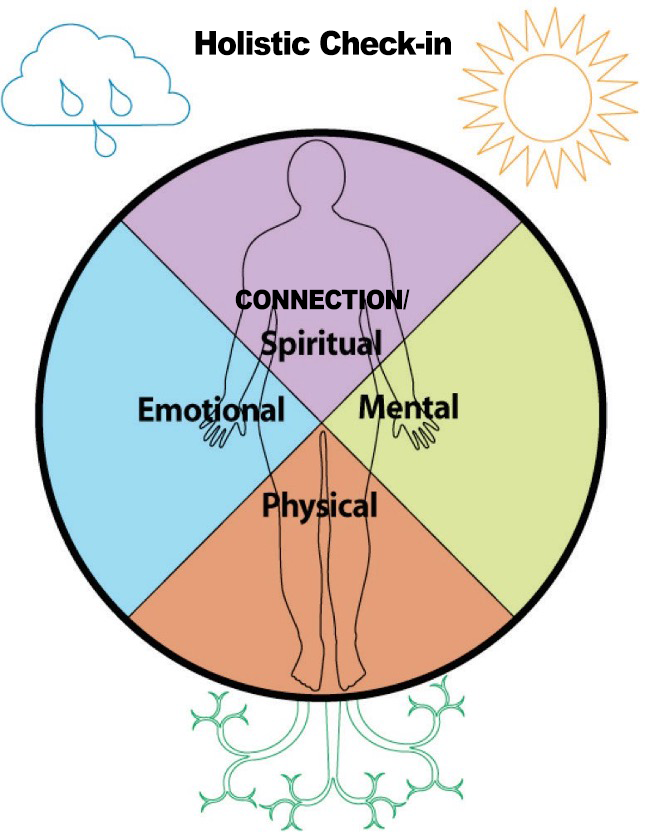Session 2: Acceptance, Empathy & Social Justice
2.1 Reconnection and Holistic Check-In
Learning Objectives:
- To facilitate trust, mutual respect, and group cohesion
- To support participants in getting in touch with their body, mind, emotion, and spirit
- To encourage mutual empathy towards each other
Materials: Markers, Name Tags, Flipchart, Handout 2.1.1 – Holistic Check-in
Time Required: 20 Minutes
Activities & Instructions
Set-up:
- Participants sit in a large circle. Facilitator welcomes back participants.
- Co-facilitator posts Ground Rules/Guiding Principles from last session for participants to refer to.
- Facilitators provide any announcement as needed.
Instructions to Participants:
- Facilitator says, “Welcome back. It is good to see everyone. Before we begin today’s session, let us again take time to honour and acknowledge the history of the land we are meeting on”. (Facilitator reads Land Acknowledgement on page 2 of this manual.) Today, we would also like to introduce you to one of our check-in practices called the “Holistic Check-in”. (Co-facilitator shows participant Handout 2.1.1 – Holistic Check-in.)
- Facilitator continues, “By holistic check-in, as shown in this diagram (show PPT slide, or refer to handout, or flipchart drawing with the 4 quadrants for holistic check-in) we mean that we are checking in with attention to the different aspects of ourselves: how we are feeling Physically, Mentally, Emotionally, and Spiritually.
- Facilitator role models by saying, “ Just speaking for myself as an example, physically I am feeling energized; emotionally I am feeling excited; mentally I am alert; and spiritually I feel connected.”
- “We also want to hear from you where you are at in terms of your energy level. From a scale of 1 to 10, 1 being extremely low energy level and 10 being very high, tell us your energy level. We may ask you about your energy level at the end of each session.”
- (After all participants have taken a turn, facilitator thanks the participants for sharing.)
Key Summary Points:
- In collaborative learning it is important that we are aware of our own and others’ energy levels and levels of well-being.
- We encourage everyone to be sensitive and supportive to each other and to participate in the best capacity we can.
Source:
Holistic Check-in framework from AIDS Bereavement and Resiliency Program of Ontario Training Manual, retrieved from http://abrpo.org/
Handout 2.1.1 – Holistic Check-in
 Source:
Source:
Holistic Check-in framework from AIDS Bereavement and Resiliency Program of Ontario Training Manual, retrieved from http://abrpo.org/

